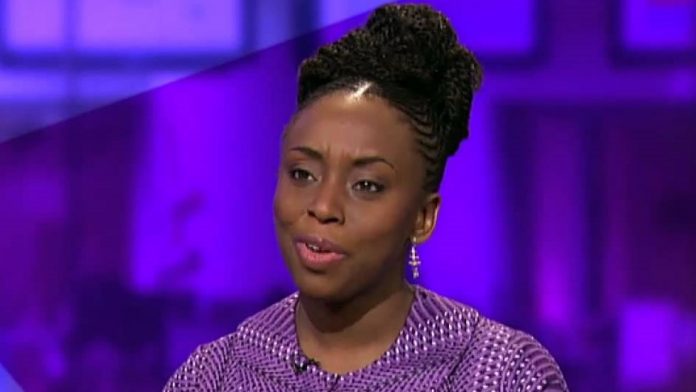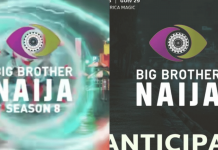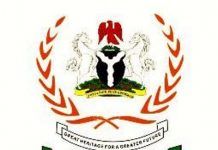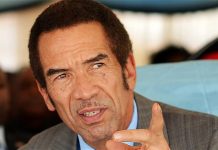The ace Nigerian female writer, ChimamandaAdichie, is at home with the notion that fools should not be suffered lightly. She gave it all to the ignorant French journalist who probably wanted to embarrass her.
“Are there bookshops in Nigeria?” That was the question posed to her by a French journalist last week. It incensed the acclaimed novelist and she had to fire back, shooting from all cylinders at the perceived French arrogance. “I think it reflects very poorly on French people that you have to ask me that question,” said Adichie. “My books are read in Nigeria. They are studied in schools. Not just Nigeria, across the continent in Africa.”
The subsequent outrage on social media was perhaps predictable: insults hurled at the French journalist amid accusations of racism and colonial prejudices.
Adichie wasn’t done yet. The novelist, who was born in Nigeria but now lives in the United States, followed up with a Facebook post the next day arguing that the bookstore question was “giving legitimacy to a deliberate, entitled, tiresome, sweeping base ignorance about Africa”.
In her Facebook post, Adichie acknowledged the devastating effect of the Boko Haram jihadist insurgency on bookstores in the Northeast zone.
She said her uncle had owned a store in Maiduguri, capital of Borno State and birthplace of Boko Haram, but it had to close down when the city began to feel “too unsafe”. While the north struggles to counter the fundamentalist ideology of the jihadists, whose name translates to “Western education is forbidden”, the south has its own issues.
Neighbourhood bookstores in Lagos, the country’s commercial capital with 20 million inhabitants, have to contend with patchy electricity, subsequent mould, and a market flooded with pirated books.
Recently, in Jazzhole — the bookshop Adichie describes as her favourite in Lagos — the power supply went off and the air became muggy. There are biographies of Afrobeat king, Fela Anikulapo-Kuti, next to books on Tehran and Venice. The owner, Kunle Tejuoso, said ‘’he took over the family business in 1975, well before the birth of Chimamanda,” he said with some amusement.
The bookstore controversy does not bother him much. “I’m used to it,” he said pragmatically. “When Westerners come to my shop they always have a little shock.” For all of Nigeria’s problems, books are an integral part of its culture, he said.


















